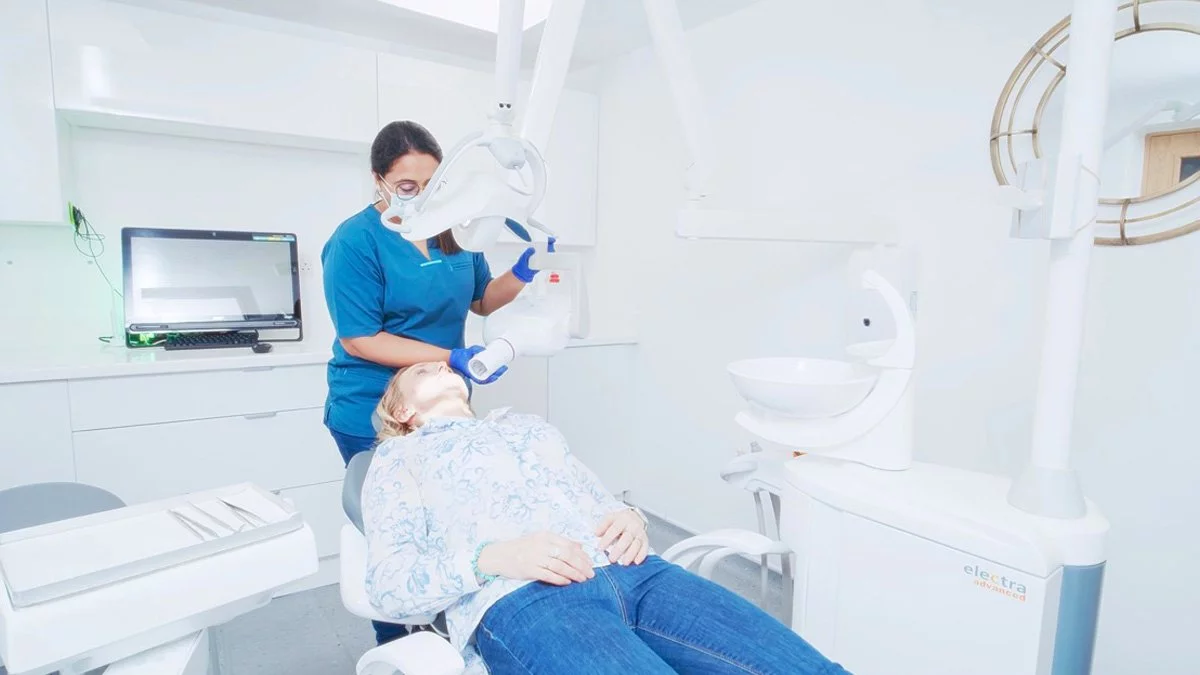Bleeding gums can be an alarming sight, especially when it happens during routine oral hygiene activities such as brushing or flossing. At Premier Dental Clinic in Bromley, we understand the concerns this can cause and are here to provide you with the necessary information to maintain your oral health. In this article, we’ll explore why gums bleed, what gum disease feels like, and effective ways to address these issues.
Why Do My Gums Bleed When I Brush My Teeth?
Bleeding gums are often an indication of gum inflammation or gum disease. The primary reason for bleeding gums when brushing is gingivitis, a mild form of gum disease caused by plaque buildup. Plaque, a sticky film of bacteria, accumulates on your teeth and gums and can lead to irritation, swelling, and bleeding if not removed through regular brushing and flossing.
Other factors that might contribute to bleeding gums include brushing too hard, using a toothbrush with hard bristles, hormonal changes (such as during pregnancy), certain medications, and underlying health conditions such as diabetes.
Why Do My Gums Bleed When I Floss?
Bleeding gums during flossing can also be a sign of gingivitis or improper flossing technique. If you have not flossed regularly, your gums may be more sensitive and prone to bleeding initially. However, with consistent and proper flossing, this should improve as your gums become healthier.
To floss correctly, gently slide the floss between your teeth and curve it around each tooth in a C-shape, moving it up and down along the side of each tooth. Avoid snapping the floss into the gums, which can cause further irritation and bleeding.
How to Get Gums to Stop Bleeding
- Improve Oral Hygiene: Brush your teeth twice daily with a soft-bristled toothbrush and fluoride toothpaste. Floss daily to remove plaque and food particles from between your teeth.
- Use Antibacterial Mouthwash: Rinsing with an antibacterial mouthwash can help reduce bacteria and plaque in your mouth, promoting healthier gums.
- Eat a Balanced Diet: A diet rich in vitamins and minerals, especially Vitamin C and Calcium, can strengthen your gums and improve oral health.
- Regular Dental Visits: Schedule regular check-ups and cleanings with your dentist. Professional cleanings remove plaque and tartar that cannot be eliminated by brushing and flossing alone.
- Quit Smoking: Smoking impairs blood flow to the gums and can exacerbate gum disease. Quitting smoking can significantly improve your gum health.

What Does Gum Disease Feel Like?
Gum disease can manifest through various symptoms. In its early stages, known as gingivitis, you may experience red, swollen, and bleeding gums, particularly when brushing or flossing. Your gums might also feel tender and more sensitive than usual.
As gum disease progresses to periodontitis, symptoms can become more severe, including persistent bad breath, receding gums, loose teeth, and discomfort when chewing. If left untreated, periodontitis can lead to tooth loss and damage to the jawbone.
Does Gum Disease Cause Bad Breath?
Yes, gum disease can cause bad breath, also known as halitosis. The bacteria that cause gum disease produce toxins that can result in persistent bad breath. Additionally, the buildup of plaque and tartar contributes to an unpleasant odour. Maintaining good oral hygiene and seeking treatment for gum disease can help alleviate bad breath.
Can Gum Disease Be Cured?
While gingivitis can be reversed with good oral hygiene and professional dental care, periodontitis requires more intensive treatment. Early detection is crucial. Regular dental visits allow your dentist to identify and treat gum disease in its initial stages, preventing further damage. Treatments for periodontitis may include deep cleaning (scaling and root planing), antibiotics, and in severe cases, surgery.
What to Do If I Have Gum Disease Symptoms
If you notice symptoms of gum disease such as bleeding gums, swollen or tender gums, persistent bad breath, or receding gums, it is crucial to take immediate action to prevent the condition from worsening. Here are the steps you should take:
- Schedule a Dental Appointment: Contact Premier Dental Clinic in Bromley to schedule an appointment. Early diagnosis and treatment are essential for preventing the progression of gum disease. Our experienced dentists will conduct a thorough examination and provide a personalised treatment plan.
- Improve Your Oral Hygiene Routine: Brush your teeth at least twice a day with a soft-bristled toothbrush and fluoride toothpaste. Make sure to floss daily to remove plaque and food particles from between your teeth and along the gum line. Consider using an antibacterial mouthwash to reduce bacteria and inflammation.
- Follow Your Dentist’s Recommendations: Based on the severity of your gum disease, your dentist may recommend professional cleanings, scaling and root planing (a deep cleaning procedure), or other treatments. Follow their advice and attend all recommended follow-up appointments.
- Adopt a Healthy Lifestyle: A balanced diet rich in vitamins and minerals, particularly Vitamin C and Calcium, can support gum health. Avoid smoking and limit sugary foods and drinks, which can contribute to plaque buildup and gum disease.
- Stay Informed and Proactive: Educate yourself about gum disease and its symptoms. Being proactive about your oral health can help you recognize early signs of gum disease and seek treatment promptly.
Conclusion
Bleeding gums should not be ignored, as they often indicate an underlying issue that requires attention. At Premier Dental Clinic in Bromley, we are dedicated to helping you achieve optimal oral health. If you experience bleeding gums or other symptoms of gum disease, we invite you to schedule a consultation with us. Call us today at +44 20 8460 9150 to take the first step towards healthier gums and a brighter smile.



